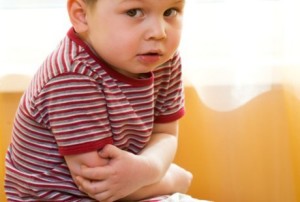Kidney Disease in children – Causes – Symptoms – Treatment
Kidney Disease in children
No age group is exempt from kidney disease. lt can affect a new-born as well as an older person. However,kidney disease can affect children in various ways. These may be reversible or irreversible. Therefore, it is important to recognise the signs and symptoms early so that the damage can be limited and treatment initiated soon, so as to avoid life-threatening complications.Listed below are the causes of this disease.
Facts about kidney disease in children
Causes Of Kidney Disease
- Birth-Four Years: Birth defects,hereditary disorders and reflux.
- 5-14 Years: Hereditary disorders,immune system dysfunctions, urinary blockage and reflux.
- 12-16 Years: Cancers
Birth Defects – These occur in the mother’s womb and include the following:
- Renal Agenesis: Children are born with one kidney.
- Renal Dysplasia: Children have both kidneys but only one is functional.
- Ectopic Kidney:Children have both kidneys but one is located differently from its normal position.
- Hereditary Diseases – These diseases are passed on from parent to child.
Infections – These in include diarrhoea, skin infections, throat infections and pneumonia and urinary tract infections.
Trauma – Like physical injury,dehydration, surgery or bleeding can cause low blood pressure which reduces blood supply to the kidneys causing damage.
Urinary Blockage And Reflux – Sometimes, a blockage can develop between the kidneys and the urine outlet due to a mechanical obstruction or a functional problem whereby the valves responsible for driving the urine downwards become dysfunctional. This leads to urine flowing in the wrong direction, known as reflux. This hammering of the urine on the kidney can also cause kidney disease.
Symptoms Kidney Disease
- Swelling of feet and face
- Breathlessness
- Loss of appetite
- Vomiting
- Anaemia
- Decreased urine
ln addition, to the above mentioned symptoms, children have a peculiar set of symptoms not seen in adults. These include learning disabilities, lack of concentration, delayed language and motor skills. Also, physical milestones and growth rate is slower than other children in their age-group. There may also be psychological changes like behavioural problems, relationship issues or a negative self-image. lt is crucial to recognise these subtle symptoms so that diagnostic testing is initiated early and kidney damage limited.
Diagnosis
- Urine Tests
- Blood tests
- scans
- Kidney Biopsy
Management
The management of kidney disease is divided in to two aspects. Non-specific and specific. Non-specific treatment includes diet modifications and basic medication.
Specific treatment refers to treatment of the underlying cause of kidney disease
Non-Specific Treatment
Diet
Protein, sodium, potassium, phosphorus and fluids form a crucial part of a renal diet.
Protein
Intake should be optimal to provide for the routine growth of the child. But it should not be so much that it loads the kidneys as this would make them decline faster. The amount of protein intake should be determined by the nephrologist and dietitian depending on the age and weight of the child and the stage of the kidney disease. Sources of protein are eggs, milk, cheese, chicken, fish, pulses, beans, paneer, soya and yogurt. Sodium intake needs to be restricted. The foods high in sodium include pickles, canned food, junk food,chips etc.
Potassium
Intake depends on its levels in the blood. The medical team will decide whether potassium intake needs to be more or less. Low potassium foods include apples, guavas, papaya, pineapple and boiled vegetables. High potassium foods include bananas, oranges, melons, potatoes, tomatoes and spinach.
Phosphorus
Levels need to be controlled assiduously. High levels of phosphorus in the blood pull out calcium from the bones, weakening them and causing fractures. Foods with high phosphorus content are red meats and aerated drinks.
Fluids
ln take should be appropriate depending on the amount of urine the child passes. A useful parameter would be to measure the quantity of urine passed over 24 hours. Allow an intake of 500 m1 more than the previous day’s output. ln general, this should range between one to two litres depending on the weight of the child.
Basic Medications
These basic medications include blood pressure medications, iron and folic acid supplements, multivitamins, bicarbonate supplements, erythropoietin injections to correct anaemia and at times growth hormone injections to compensate for growth failure.
The important thing to remember while prescribing medication is that simply reducing dosage of medication to compensate for a child’s lower body weight is wrong. The physiology of children and their response to medications is different to adults and strict dosing guidelines need to be followed





















